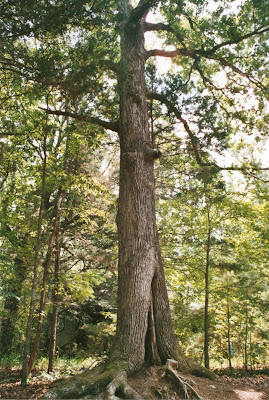The Last Tattoo
JOAB
From Chapter 4
Listening long for
voices
that never will speak
again, hearing the hoofbeats
come and go and fade
without a stop …
Donald Davidson
Said of General Lee after
the War
The muffled drum’s sad roll has beat
The soldier’s last tattoo;
No more on life’s parade shall meet
That brave and fallen few.
From Bivouac of the Dead
Theodore O’Hara
Joab spent the night on the bank of the Tennessee
River, rose with the first light of day, rolled his blanket, and rode up the
hill in knee deep grass to Shiloh. The rain had stopped and the early sun cast
cheerful rays through hundreds of live oak trees whose fresh green leaves
glistened with every drop that clung for moments and then dropped to the
acorn-covered ground.
He was seeing the beautiful state of Tennessee for
the first time. If not for the sickening thought of blood and treasure strewn
across the hills of Shiloh, it would have been different.
 |
| The Bloody Pond, Shiloh |
He removed his hat, bowed his head and paid his
respects to the brave southern soldiers who had fought fearlessly. It was the closest Joab would
ever get to the war. He needed to relive the day, wanted to walk where General
Albert Sidney Johnston walked, stand on the spot where he died, wade out into
the now infamous Bloody Pond and ride across the Peach Orchard, where the trees
drooped from the weight of their blossoms, pink and white.
There was nothing left of Shiloh Church, for it had
not withstood the war. Joab thought maybe its people would build it back
someday. Or maybe those who once worshipped there would not be able to do so
again. Shiloh would never be the same. It would forevermore be a burial ground.
Up the hill and near the front entrance of the battleground were thousands of
grave markers, mostly for Union soldiers. Tennessee was a southern state, a
secession state, yet the men in blue were given the grave
sites on the hillsides. The South’s men were buried together in several long
narrow trenches with scarcely a marker.
Matters not, he thought. God knows where they are,
and they will come forth at the Resurrection. A calmness overwhelmed Joab at
the thought of it, a strong measure of strength now belonging to him. He rode
up on the bluff, and standing in the middle of Shiloh ground viewed the landing
below, dismounted, and he recalled the full account as it had been passed down
to every young Confederate—
Jane Bennett Gaddy, Ph.D.
Trinity, Florida
Excerpts from JOAB
Scheduled for publication Fall, 2012





Comments
Post a Comment